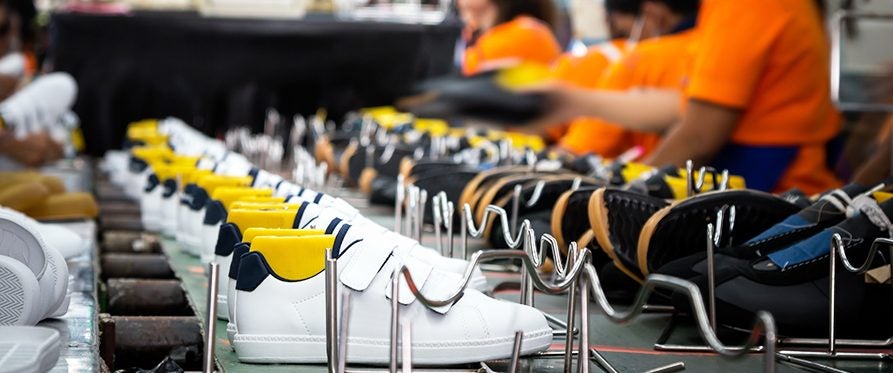On the Verge of a New Era of Transparency and Efficiency for Supply Chains
Do you know how far your brand-new sneakers traveled before you even took one step in them? From manufacturing to shipping to distribution, your sneakers were already world travelers before getting to your feet. Information on your sneakers’ journey – where they visited, how long they were there, and all the transactions involved – is extremely valuable for logistics operators.
Logistics operators are pressed by increased consumer demands, expectations around product availability, quality and reduced price. At the same time, they deal with insufficient information, transparency and trust issues that can generate significant inefficiencies such as slower deliveries and increased costs for everyone who is part of the supply chain.
However, this may change very soon.
As we enter the Fourth Industrial Revolution, new digital technologies have the potential to change how we interact with the world as we know it.
In an interview with Bloomberg, Arvind Krishna, senior VP of hybrid cloud at IBM, explains: “Blockchain is one of the most fundamental technologies since the early days of the internet. What the internet did for information, blockchain will do for transactions.”
In short, a blockchain is an open digital database that can record every transaction related to an item chronologically in a permanent record. It allows for innovative solutions in many sectors, from health, finance and education, to food safety, music copyrights and land registries. Everything can now be subject to having a digital identifier in blockchain which can add enormous value to a transaction.
It’s the first time we are going to have trusted transactions within multiple parties, says Krishna. “That’s what blockchain enables.”
Blockchain Applications and Solutions in the Making for Supply Chains
In trade and logistics, IBM has joined efforts together with Maersk, government authorities (customs and phytosanitary agencies), and trading and logistics partners to develop new blockchain solutions by testing of several pilot projects in the last months. One of them is the Singapore Customs Declaration initiative which is currently underway, in collaboration with Singapore Customs, and uses this technology to send customs declarations from New York to Singapore.
Other pilot projects use this technology to conduct cross-border shipping operations, for example, tracking a shipment of flowers to Royal Flora in the Netherlands from Mombasa, Kenya, or tracking goods shipped from Schneider Electric in Lyon, France, to the US port of Newark, passing through the port of Rotterdam, The Netherlands.
By employing blockchain solutions, Maersk expects to have complete traceability of more than 10 million containers by the end of 2017.
Blockchain technology leads to gains in supply chain efficiency not just by reducing intermediaries and paper and manual tasks, but also through the opportunity to plan processes with greater certainty and predictability using reliable real-time data that is available to participants in the blockchain. This traceability allows for full end-to-end visibility and improves inventory management, transportation times and costs for the private sector. As for border control agencies, such as customs administrations, solutions based on blockchain technology will improve their capacity for risk analysis and targeting, thus contributing to greater trade facilitation.
Given the momentum, attention, resources and efforts that government authorities and global companies with operations in supply chain logistics are expected to focus on blockchain, it won’t be long before your pair of sneakers has a digital identity to help public and private stakeholders to smoothly navigate its supply chain, with the blockchain recording every event and transaction on its journey to you.
Building on our deep engagement as partners in trade, supply chain and border management initiatives in Latin American and the Caribbean, the Inter-American Development Bank welcomes new technologies like blockchain, which may help assist countries to develop solutions that facilitate and secure greater trade flows and increase economic development for the benefit of citizens and communities across the region.


Leave a Reply